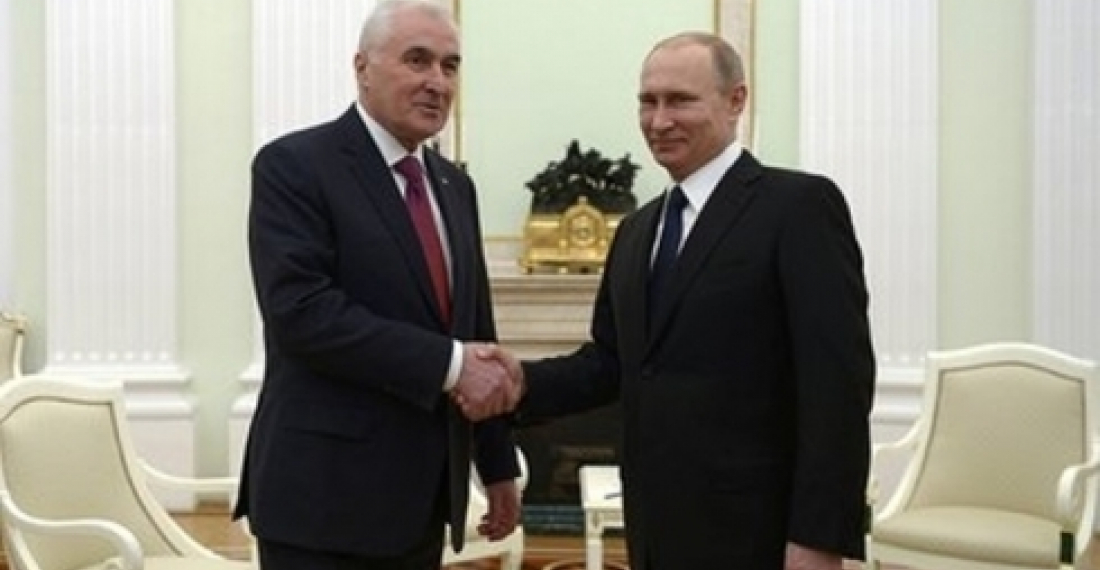Россия и Южная Осетия сегодня в Кремле подписали "Соглашение об альянсе и интеграции". Соглашение заключается на 25 лет с возможностью последующего продления на десять лет.
"Договор, в частности, предусматривает формирование двумя странами общего пространства обороны и безопасности, свободное пересечение российско-югоосетинской границы, интеграцию таможенных органов, сотрудничество по линии органов внутренних дел, упрощение процедуры приобретения российского гражданства и социальную составляющую, в том числе вопросы пенсий" - говорится на официальном сайте президента России.
Российские СМИ сообщили, что договор предусматривает формирование единой системы оборонной и космической безопасности между Россией и Южной Осетией. Отдельные подразделения вооруженных сил Южной Осетии будут интегрированы в Вооруженные Силы России. Военная агрессия против одной страны будет рассматриваться как акт агрессии, направленная против другой страны. Договор также предусматривает свободное пересечение границы между Россией и Южной Осетией. Документ предусматривает, что Москва и Цхинвал будут проводить скоординированную внешнюю политику. Россия поможет найти больше признания среди других стран независимости Южной Осетии.
Президент России Владимир Путин похвалил данный договор об Альянсе и интеграции с Южной Осетией, назвав его "эпохальным документом." "Сегодня мы сделали еще один важный шаг на пути к дальнейшей консолидации партнерских связей", сказал Путин журналистам после переговоров с Леонидом Тибиловым. Путин заявил, что один миллиард рублей ($16 млн) будут выделены из бюджета России в 2016 для реализации Договора о союзе и интеграции между Россией и Южной Осетией. "Реализация договора будет поддерживаться значительными финансовыми ресурсами. В 2016 году около 1 млрд рублей будет выделено Южной Осетии для этих целей", заявил журналистам Путин. "В 2008-2014, общая сумма финансовой поддержки для республики составила 43 млрд рублей", отметил президент.
Политический редактор Commonspace.eu в комментарии сообщает, что "на практике новый договор не меняет реальность, которая сложилась с августа 2008 года, когда Россия де-факто объявила себя протекторатом Южной Осетии. Однако, сроки подписания договора направлены на оказание максимального давления на Грузию на ее пути становления ассоциированного государства с Европейским Союзом. Даже время церемонии подписания была приурочена к сессии Женевского процесса, в рамках которого Грузия, Россия и самопровозглашенные Абхазия и Южная Осетия регулярно встречаются под эгидой ЕС, ОБСЕ и ООН. В то же время, Правительство России не собирается сжигать все мосты в случае сближения с Грузией в будущем. Так что, хотя договор и включает в себя фразу "интеграция", Россия пока не намереваетя присоединять Южную Осетию. Интересно также, что объем финансовой помощи России для Южной Осетии в 2016 году составит лишь 16 миллионов долларов. Интеграция кажется не повлияла на ее щедрость".
источник: commonspace.eu по материалам kremlin.ru и ИТАР-ТАСС.
Фото: Президент Путин с лидером Южной Осетии, Тибиловым, в Москве, 18 Марта 2015 (фото любезно предоставлено пресс-службой президента России).






